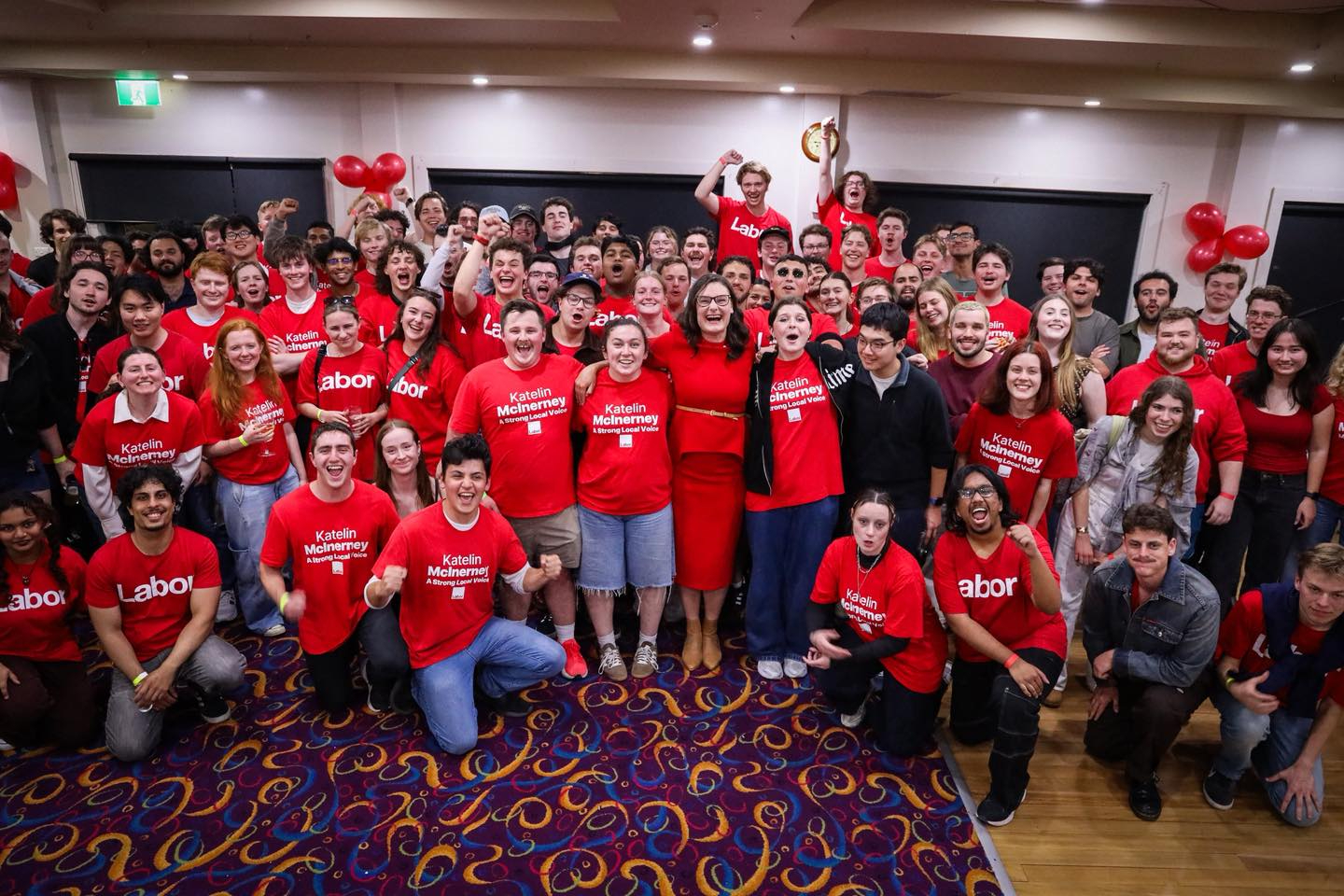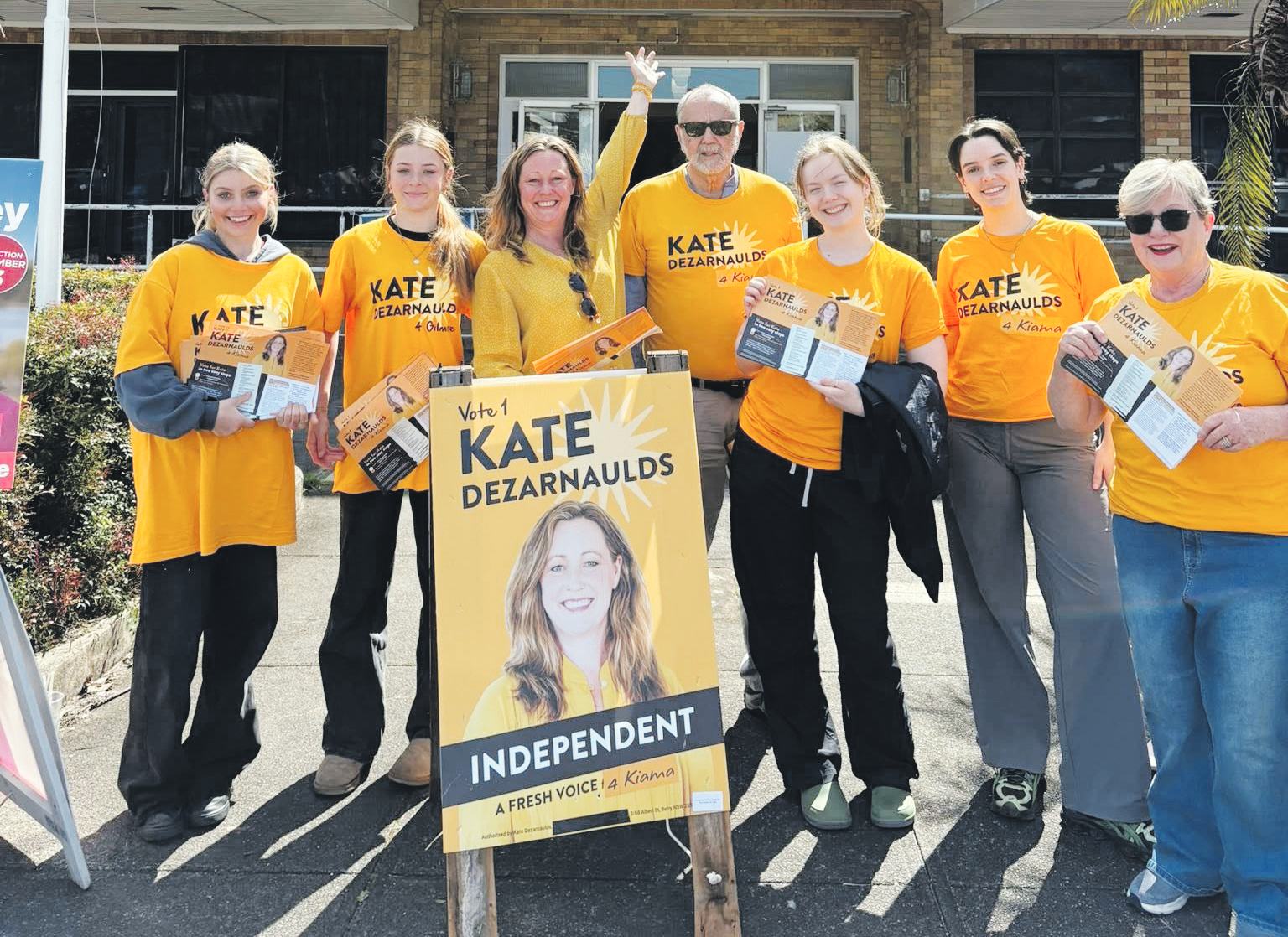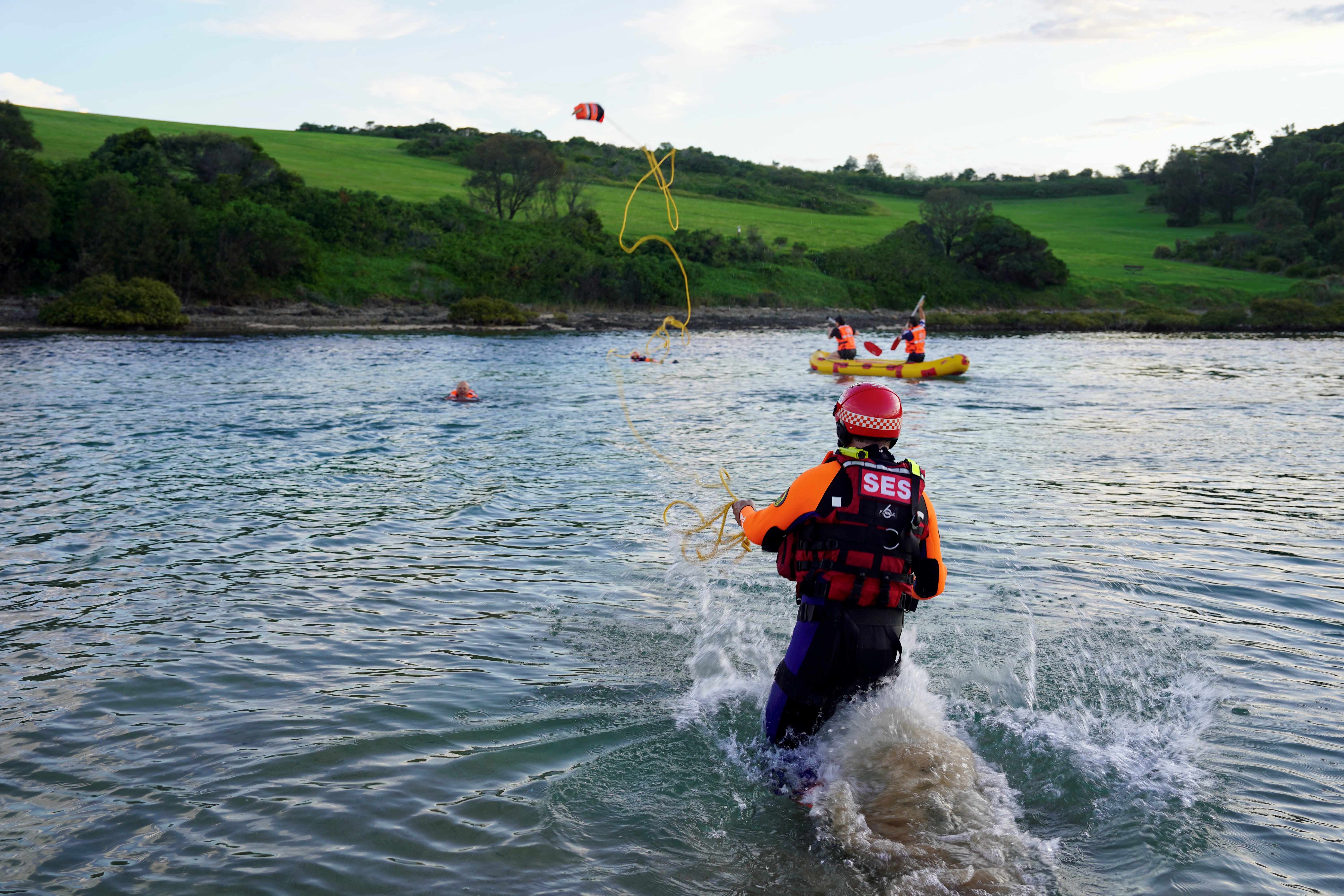Blood, sweat and tears behind The Pines’ success
22 September 2025, 8:00 PM
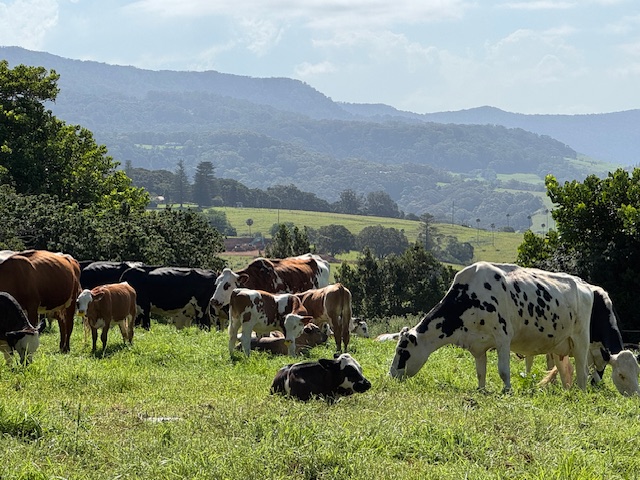
Micro dairy farmers Kel and Mahlah Grey have become experts at adapting.
To the ups and downs of farming, the fickleness of the elements, the demands of balancing parenthood with a 24/7 job and to the impact of global politics and the fluctuating economy on milk prices.
Most people in Kiama have shared the cheeses and gelato handcrafted by Kel and Mahlah, who run The Pines, a micro dairy milking 26 cows on the picturesque Saddleback Mountain. But few are aware of the blood, sweat and tears required to run a successful, sustainable dairy farm.
Earlier this year Kel and Mahlah planned a trip to Mahlah’s native New Zealand. It was the first overseas family holiday for the couple and their three daughters since the birth of their six-year-old, the youngest of their children.
Just days before they were due to fly out, galeforce winds and arcing powerlines sparked a grass fire on their 40-hectare property.
“How do you know a farmer is about to go on holiday? Shit starts hitting the fan,” joked Mahlah.
Despite the chaos and last-minute scramble of literally putting out fires, the family enjoyed a well-deserved break and have returned to continue serving delicious gelato at their shop on Collins St and at the weekly Kiama Farmers Market.
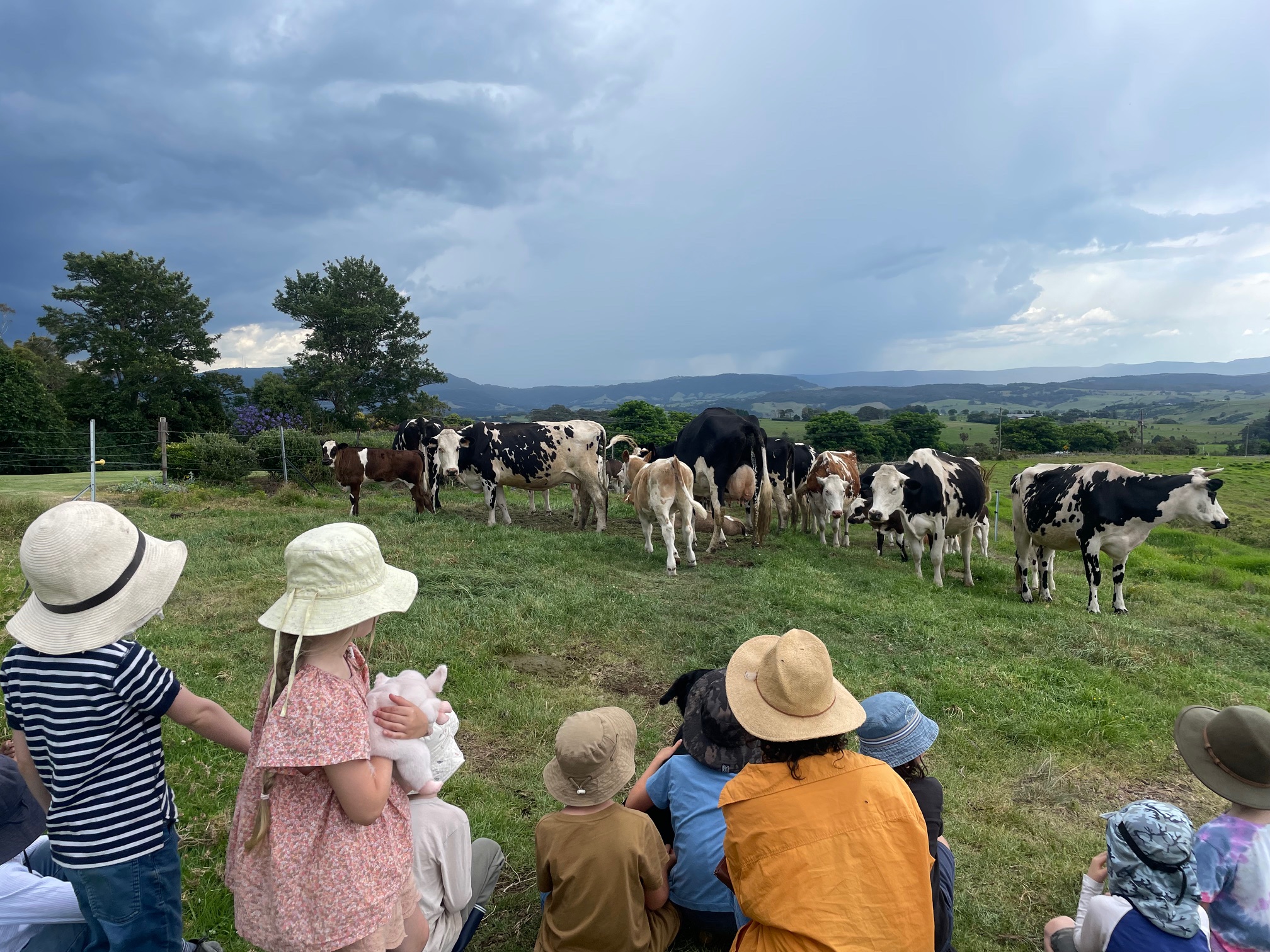
Cheesemaking has been put on hold, with The Pines famous cheddar and brie flying off the shelf as production wound up on the back of COVID and a dramatic drop in supplier demand.
“We never thought we would have cheesemaker on our resume,” laughs Mahlah. Nor did she expect to be working the land surrounded by “huge cows”.
“When I first arrived here I thought ‘Why are these cows so huge’ but Holsteins are specifically bred to be bigger animals for better milk production.”
Kel is a sixth-generation dairy farmer whose family immigrated from Ireland in the 1840s, among the original immigrants given a clearing lease. The Greys were also skilled cattlemen and began dairy farming in 1854.
Kel grew up surrounded by cows but was never particularly drawn to farming, preferring to travel and ski. Mahlah was raised in New Zealand and grew up with a deep love of horses. She became a professional rider and moved to Australia 20 years ago to work for Kerry Packer at his famous Ellerston Estate.
Mahlah went on to study equine nursing and after qualifying, she decided to take a short break skiing at Thredbo before moving to Sydney to work as an equine nurse.
“Then I met Kel at the snow and that threw all those plans out the window,” she says smiling and pointing to her husband as he expertly maneuvres the tractor around the steep hillside. “The rest is history.”
With a background in large animals, Mahlah took to dairy farming like a duck to water. But it’s her passion for sustainability and regenerative farming that saw The Pines pivot from conventional milk production to a micro dairy, focused on farming from paddock to plate and creating community connections.
The family has turned The Pines into a destination dairy with the farm opening its gates to visitors each month throughout the milking season so people see the challenges and triumphs of dairy farming, which Mahlah describes “as a lovely, complete circle of primary industry”.
“You can see it all the way through, you're not losing animals as you go, you're seeing them every day,” she explains. “But the labour is so intense you either have to commit to working seven days a week, all year long or focus on scalability and sustainability.”
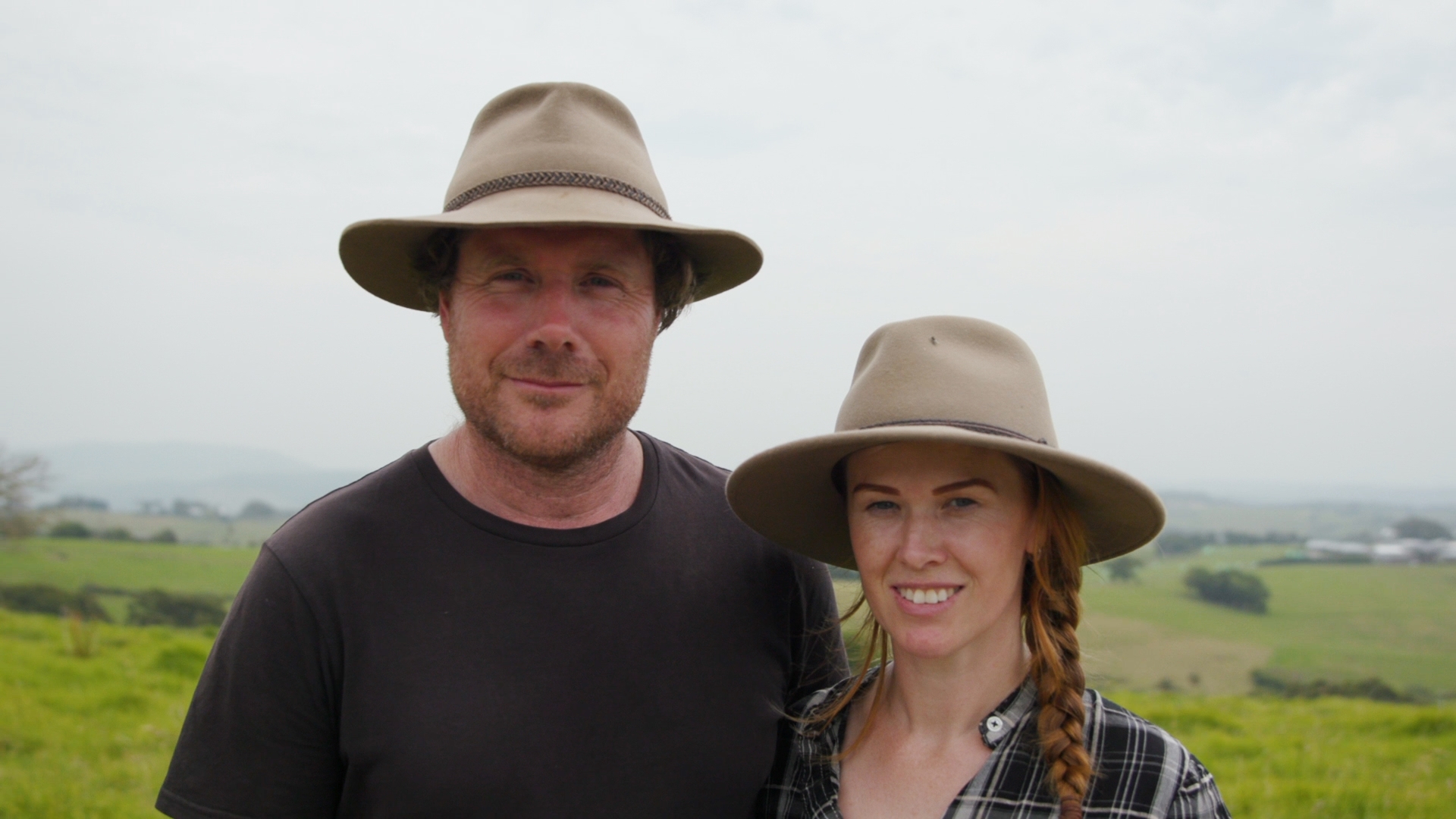
The Greys chose sustainability and work-life balance.
“Kel and I are both critical thinkers with a thirst for knowledge,” says Mahlah. “Both of us entered into this dairy system, handed over to by the last generation, and thought ‘how can we make this work better for us? The landscape is changing, our climate is changing, economic times are changing, so what do we need to do to remain viable?’
“Just producing milk to sell into a co-operative or on contract with someone wasn't going to make enough money. Cows can require a large amount of grain and hay to maintain high levels of milk production but the pastures on The Pines weren’t good enough to maintain a large number of Holsteins.”
So Mahlah, who also has a keen interest in genetics and breeding, began looking into a cross-breed of dairy and beef cows and ways to diversify the grazing land to provide constant access to fresh pastures.
Mahlah and Kel soon learned that being at the mercy of the elements meant sustainability was the key to successful farming.
”We just couldn't afford to keep farming in the manner that we were with the amount of grain and hay that we were having to buy in, the financial pressure was too much so we turned to regenerative farming where we created a functional ecosystem where it's not just one species that is thriving.”
A mix of 16 different species including plantain, chicory, rye, and peas were seeded throughout winter to sustain the herd and create healthy, biodiverse soils. At the height of The Pines cheese production the farm was supplying restaurants across the state with their award-winning cheese.
They also began selling their products direct to the public through The Pines Gelato Bar, now a destination break for ice-cream lovers up and down the coast.
The Greys are also big believers in creating a connection between farmers and consumers through education and sharing an authentic glimpse into daily farm life with the wider public.
So once again Mahlah and Kel pivoted, branching into agri-tourism, and opening the farm gates to thousands of visitors each year on the back of a “massive increase in tourism” post-pandemic.
“We've got Grounded Education up here four days a week running a school-based education program and Kerryn from The Passion Project who has created a biodiverse, permaculture garden selling produce direct to the public,” says Mahlah.
“Then we've got Laura from That Local Honey who runs a bee breeding program. Our little Grounded students open the hive and check on the bees, they extract some honey and get to learn about where their food is coming from and the role that they can play.
“Our education programs and open days are all about showing how farming can balance tradition with innovation and the connection between the wisdom of past generations and the opportunities for the next.”
The Pines Gelato Bar, located at 26 Collins St, is being refurbished and will be ready to relaunch on 27 September. Farm “Pop Ups” will resume for the September school holidays.
NEWS
